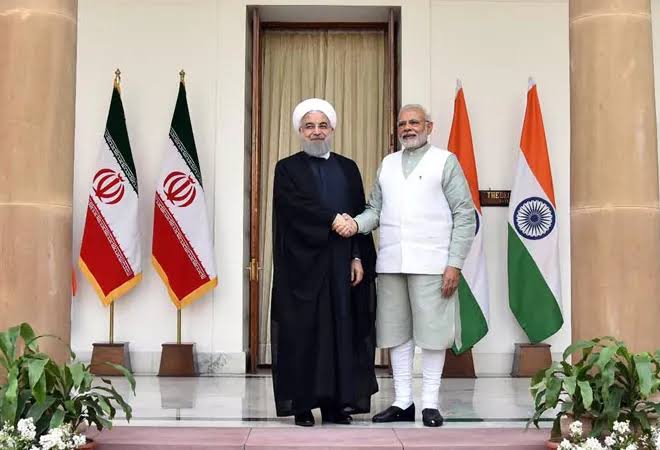Iran’s envoy to India emphasizes connectivity between Iran – India

Iran’s Ambassador to India, Iraj Elahi, expressed confidence that the new president of Iran will bring new energy and will energize the bilateral relations between Iran and India.
He emphasized that connectivity is the backbone of the India-Iran relationship, adding that culturally both the countries have agreed to strengthen relations. The envoy said that the two nations have signed various agreements related to Connectivity.
“We have signed different agreements. We have defined different fields for cooperation. Connectivity is the main part of our relation and culturally, we both countries have agreed to strengthen relation,” the envoy said.
Commenting on the major sectors in which both countries will focus going forward in the future, Elahi said, “Connectivity is the backbone of our relation. India is a rising power. Rising power means that this country has to first of all diversify its route to the international market. Secondly, it needs safe, short, cheap routes to the markets.”
He added that the cooperation between the two countries will be strengthened with the initiatives taken by the Indian government.
“We are witnessing different initiations by the Indian government which India was the initiator of this. We believe that through different projects which have been defined by the two countries the relation and cooperation of the two countries will be strengthened,” he said.
The envoy reiterated India’s initiatives in which it agreed to open a credit line for USD 250 million for the infrastructural projects in Iran.
Moreover, he also noted that India agreed to invest USD 120 million according to the Chabahar Port.
“India has agreed to open a credit line for about USD 250 million for the implementation of infrastructural projects in the southeast of Iran. Besides this, according to the Chabahar port contract, India has accepted to invest USD 120 million. Besides this, we are witnessing that the attention of Indian investors toward Iran is increasing,” he said.
The Chabahar Port is an India-Iran flagship project that serves as an important transit port for trade with Afghanistan. India has been a key player in the development and operation of Chabahar Port.
As India and Iran signed a long-term contract for operating the Shahid-Beheshti Port Terminal in the presence of Indian and Iranian ministers, it is pertinent to note that the Chabahar port pact deal inked between the two nations will not only enhance regional connectivity but will also facilitate trade, particularly between India, Iran and Afghanistan, bypassing Pakistan.
The Long-Term Bilateral Contract on Chabahar Port Operation was signed between Indian Ports Global Limited (IPGL) of India and the Port & Maritime Organisation (PMO) of Iran, enabling the operation of Shahid-Behesti in the Chabahar Port Development Project for a period of 10 years.
“Last year, during recent months, more than USD 120 million was invested by Indian citizens in Iran in different sectors, especially in mining and industry,” he added.
He said that these initiatives, “shows that despite the sanctions, the Indian economy, and Indian entrepreneurs have understood the importance of Iran and its potential.”
Elahi said that Iran is trying to prepare the legal base of this cooperation to pave and prepare good and useful ground for the Indian and Iranian investors.
Besides this, tourism is another sector, Elahi said, adding, “We recently exempted…Indian passport holders. Those who hold an Indian passport from a visa of Iran can just buy a ticket, and fly to Iran.”
“…We are trying to increase the attention of Iranian tourists toward India. Recently after COVID-19, the number of Iranian tourists traveling to India has increased. We are encouraging them,” he added.
The International North-South Transport Corridor (INSTC) is a multi-modal transportation route linking the Indian Ocean and the Persian Gulf to the Caspian Sea via Iran and onward to northern Europe via St Petersburg in Russia.
The INSTC envisages the movement of goods from Mumbai (India) to Shahid Beheshti Port – Chabahar (Iran) by sea, from Chabahar to Bandar-e-Anzali (an Iranian port on the Caspian Sea) by road, and then from Bandar-e- Anzali to Astrakhan (a Caspian port in the Russian Federation) by ship across the Caspian Sea, and after that from Astrakhan to other regions of the Russian Federation and further into Europe by Russian railways.




